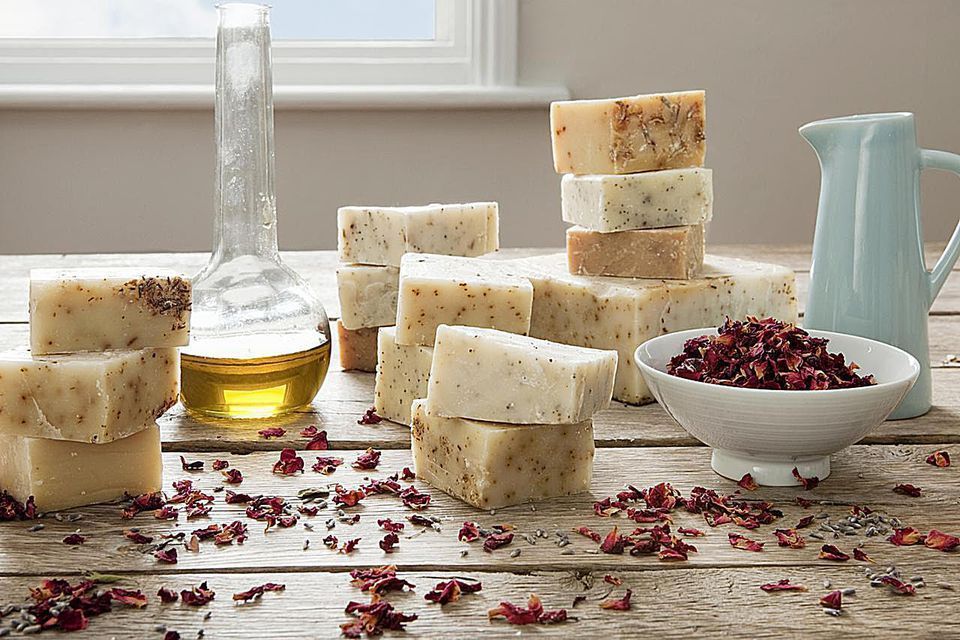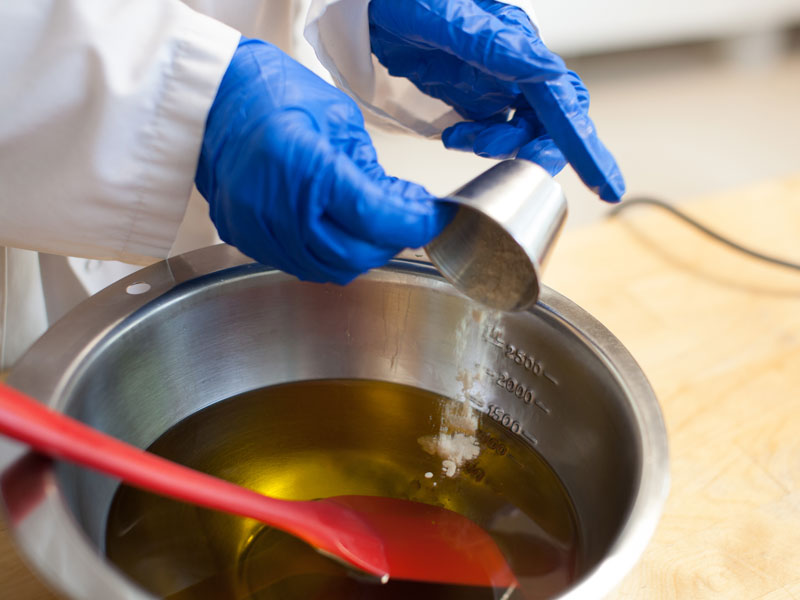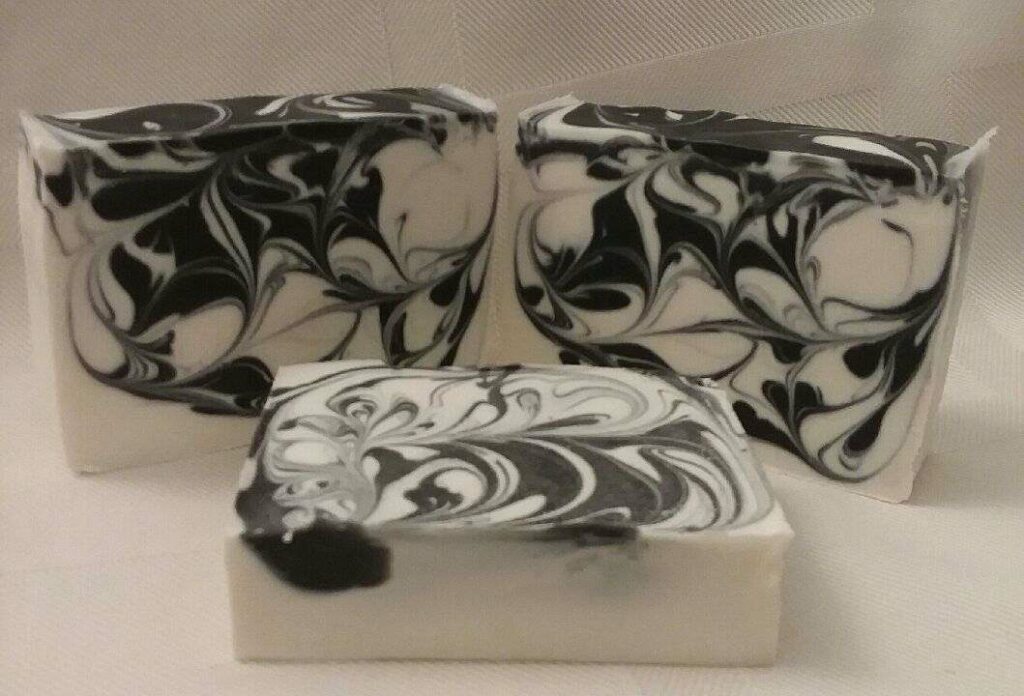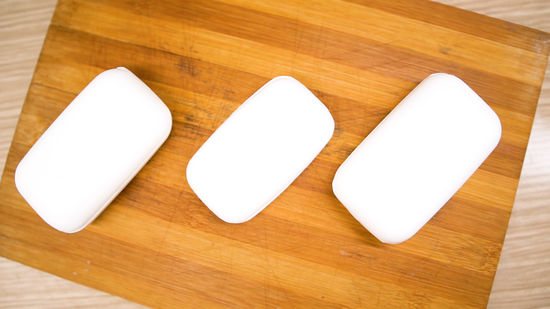Hand-Crafted Artisan Soap
Luxurious | Revitalizing | Beneficial
Enjoy our Carefully Hand-Crafted Selection of Cold Processed Artisan Soaps
At East Coast Healthy Living, we are committed to making sure your bodies are nourished every day and exposed only to revitalizing beneficial ingredients. All of our Hand-Crafted Artisan soaps incorporate 100% pure essential oils through a Cold-Processed Soap method to ensure every one of the aromatherapeutic benefits are left fully intact for your total enjoyment.
Think about it, your skin is the largest organ in your body and it is tasked with protecting your delicate insides from many external elements. It is also highly absorbent, making you skin a significant gateway into your bloodstream.
Better health begins with carefully taking care of your skin. Our Cold-Processed Artisan Soaps are crafted to help you achieve this goal.
The lotions, soaps, and deodorants we expose ourselves to on a daily basis may contain toxic fragrances and synthetic chemicals that we definitely don’t welcome with open arms.



Our Coal Processed Artisan Soap: What Are The Details
Caring for YOUR skin is why EastCoastHealthyLiving.com makes available to your family ONLY the highest quality, hand-crafted Artisan soaps available today.
All soap is the result of a chemical reaction called saponification that occurs between lye and a fat or oil (such as Olive Oil or Coconut Oil). Our Cold-Processed Artisan Soaps allows the lye to be neutralized without any outside sources of heat, called “curing”. This is quite a time-consuming process that allows for more gradual saponification. It can take 4-6 weeks for our Cold-Processed Artisan Soaps to become the soap that you body rally wants and needs.
The lack of heat keeps the essential oils intact and in perfect condition to lather you in therapeutic goodness and true luxury. It takes patience, but we know it’s more than worth it for your skin!
Over 4-6 weesks, our Cold-Processed Arstisan Soaps “cures” as all of the lye is used up to break down the oils into their cleansing and water is slowly evaporated, leaving a gentle, very firm bar of high-quality soap that lasts a long time.
With our Cold-Processed Artisan Soaps, the fatty acids of the oils are brokend down by the lye. They then form a chain wich, on one end loves water, and on another end, loves oil. You can see these chains in action while you’re latheing up. The oil-loving end grabs on to the dirt and grime, and the water-loving end hangs on to the water that rinses it all away.
Along with the oils necessary for soapmaking, we also boost our soap with extra vegatable-based fats to ensure there is plenty left to go around for everyone! This extra fat or superfat remains intact, providing the moisturizing qualities we all love.
As the opposite of our Cold-Processed Artisan Soaps, hot-process soap is all about more immediate results. Instead of placing the soap in a mold to cure, the liquid is placed in a heat source and heated until it cures. Our Cold-Processed Artisan Soaps have the advantage of a gradual, more natural chemical reaction resulting in a more nourishing skin-compatible soap you and your family will surely enjoy.
Our Coal Processed Artisan Soaps Verses Commercially Available Soaps
To be regulated as “soap” by the FDA, soap must be composed mainly of the material you get when you combine fats or oils with an alkali, such as lye. The cleaning action must be done entirely as a result of that material. This is why many commercial brand products avoid the word “soap” on their labels, instead of using terms like “beauty bar” or “moisturizing bar”.
The word “soap” is heavily regulated by the US Food & Drug Administration (FDA). Many conventional soap products are actually detergents. The cleaning action is done by stripping the body of all oils through synthetic chemical ingredients. In fact, the glycerin that remains from soap processing (the same glycerin that is responsible for natural moisturizing) is removed from commercial soaps.
Why on earth would they do this? Well, when the glycerin is removed, it is instead placed into the lotions and creams displayed nearby in the grocery aisle. The soap dries out your skin, so you reach for the lotion to moisturize. You now purchased two items instead of just one.
Hummmm, isn’t this something to think about?
Synthetic detergents, such as dish soap, liquid hand soaps, and shampoos are very good at removing oils. A little too good, as they tend to strip skin of its natural oils and could leave your skin dry and itchy.
East Coast Health Living’s Cold-Processed Artisan Soaps differ greatly from industrially made soap in that an excess of fat is used, beyond that needed to consume the lye, and the glycerin left in acts as a moisturizing agent.


fun facts
- The 2014 and 2018 USDA Farm Bills further authorized the use of industral hemp for the first time since the 1930s
- A “cousin” to the marijuana plant with no psychoactive properties – hemp or hemp derived products will not get you “high” because they contain no THC

